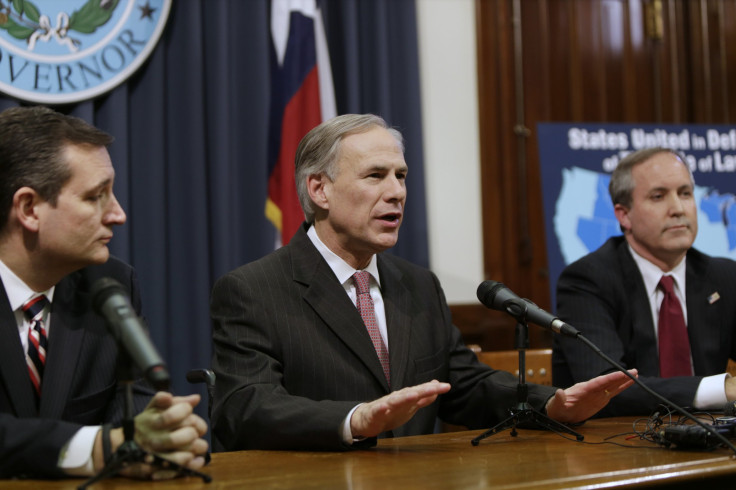What Is A State Constitutional Convention? How Marco Rubio, Greg Abbott Plan To Amend The US Constitution Would Work

Texas Gov. Greg Abbott called Friday for a convention of states to amend the U.S. Constitution and stop the federal government that he said has "run amok." He's not the only Republican to make that suggestion recently. At the end of December, Marco Rubio pledged to "put the prestige and power of the presidency behind a constitutional convention of the states."
But how realistic is that demand? For starters, the U.S. has never actually had a constitutional convention. Here's what else you need to know about this call for a convention of states.
The U.S. Constitution can be amended in two ways. As laid out in Article V of the document itself, one is for Congress to propose an amendment that has been approved by two- thirds of the members in both chambers of Congress. The other is for two thirds of all state legislatures to call for a constitutional convention to propose amendments. Either way, three-fourths of state legislatures have to ratify the proposed amendment in order for it to become valid.
One of the instances where a convention of the states came closest to happening was in 1988, when 32 states — two shy of the 34 necessary for an amendment to be proposed — called for a balanced budget amendment. Through the first method, where the initiative for an amendment comes from Congress, the Constitution has been amended 26 times.
The idea of a constitutional convention is, at best, disturbing to some. “I certainly would not want a constitutional convention. Whoa! Who knows what would come out of it?” Supreme Court Justice Antonin Scalia has reportedly asked.
And as Warren Burger, a former Chief Justice, wrote in 1988, such conventions have the leeway to set their own agendas. "Congress might try to limit the convention to one amendment or one issue, but there is no way to assure that the convention would obey. After a convention is convened, it will be too late to stop the convention if we don’t like its agenda," he wrote. "A new convention could plunge our nation into constitutional confusion and confrontation at every turn, with no assurance that focus would be on the subjects needing attention."
Confusion and concerns about how a convention would work, what its results could be and perhaps most basically, whether one could even be called, have not stopped Abbott or Rubio, however.
"That is the only way that we are ever going to get term limits on members of Congress or the judiciary and that is the only way we are ever going to get a balanced-budget amendment," Rubio has said during a campaign stop in Iowa.
Rubio endorses Convention of States! Will the other GOP contenders support it as well? https://t.co/lQBnkPyBOU
— Mark R. Levin (@marklevinshow) December 30, 2015Abbott, meanwhile, released a document of nearly 70 pages that contained proposals for nine constitutional amendments that he said would "fight for, protect and hand on to the next generation" American freedom, "restore the rule of law in America" and give power back to states.
“The irony for our generation is that the threat to our republic doesn’t come just from foreign enemies, it comes, in part, from our very own leaders,” Abbott said Friday in a speech at the Texas Public Policy Foundation's Policy Orientation, the Dallas Morning News reported.
© Copyright IBTimes 2024. All rights reserved.






















